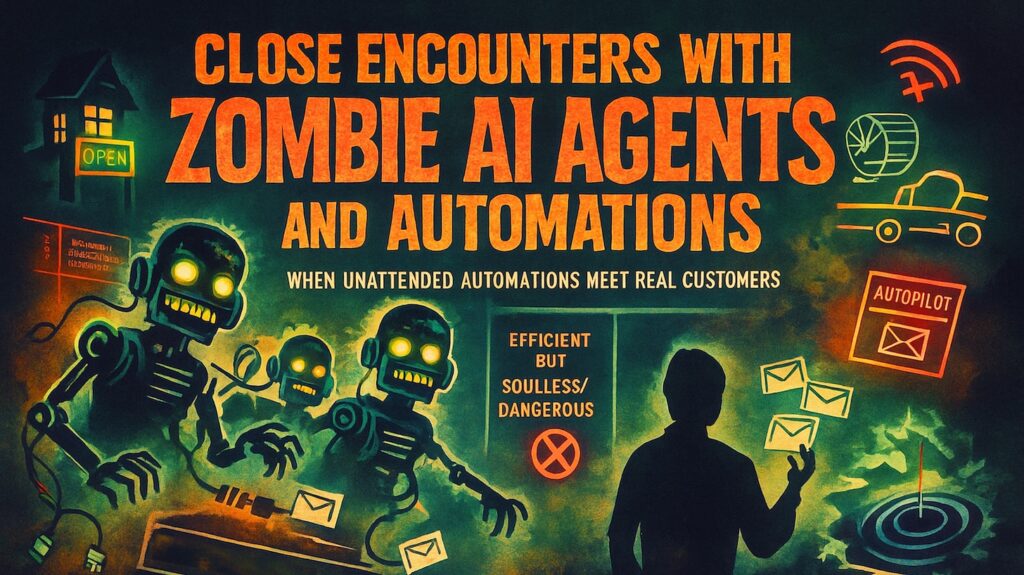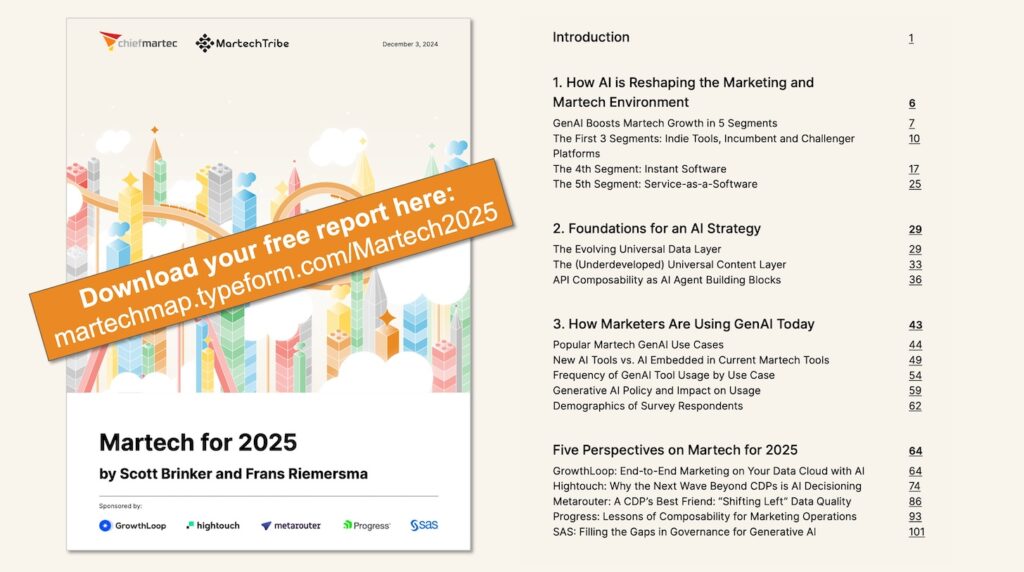Earlier this month, I read Oracle/Eloqua’s new report on Defining the Modern Marketer: From Ideal to Real. One of the more fascinating aspects of the report, based on a survey of 556 B2B marketers, was the shifting balance between the “art” of marketing and the “science” of marketing.
Which lead me to write: what do you mean by marketing as a science?
To better answer that question, I was able to have the following Q&A with Nick Bell, VP of Corporate Marketing at Oracle/Eloqua. Without getting hung up on the semantics of the word “science” — which we can save for an evening of philosophical debate over a bottle of something — Nick provides some terrific perspective on the sea change underway in marketing and the enormous opportunity it presents.
Can you start by telling us a bit about your background and your role at Eloqua and now Oracle?
I started my career as an investigative reporter (post-Watergate era). Somehow that took me into PR, then advertising, and finally into corporate communications. I’ve been in technology marketing for 20 years.
My early claim to fame in this area was starting the first customer relationship marketing effort for Sprint’s business products division. Today I’m Vice President of Corporate Marketing for Oracle/Eloqua, responsible for web, brand development, content marketing, and creative services.
I enjoyed your recent report on the modern marketer. One of the themes I find most fascinating is the balance of science and art in marketing. What do you think marketers mean by “science” in that context? What kind of characteristics make marketing scientific? (I’m not worried about the semantics — just interested in the ideas.)
I started my career in corporate communications when there was no “science” in marketing. It was a one-way communication between company and consumer. Ad campaigns. Events. Direct mail. PR. Tell ’em, tell ’em what you told ’em, tell ’em again.
It was all about the creative strategy and execution — break through the clutter to get noticed. Customer communications consisted of customer newsletters, sales rep enablement — again, tell ’em what you want them to know and do.
Fast forward today, and it’s a 180 degree switch.
The “art” of marketing (strategy/media/CTA) is still very important, but it’s matched with the need to deliver a measurable impact. I remember we always had the pressure to “prove” our impact, but it was said with a “wink” vs. a threat.
I think we just hit the tipping point and the “wink” is now a “stare.” We have to deliver results with our marketing budgets or we won’t have budgets. I think this is especially true in technology marketing where the application of technology to marketing practice is becoming the norm — as it should be!
Marketers now have the opportunity to have a “system of record” to match those of the finance and IT departments. Using data to drive marketing strategy and execution is the scientific component of marketing and should be embraced by marketers as a savior.
Unfortunately, as our recent survey of 500 marketers proved, the need to apply science in addition to art is no longer an option; but it scares the wits out of the majority of marketers. Today we’re required to be equal parts creative, technologist, and financial analyst.
Today [marketers are] required to be equal parts creative, technologist, and financial analyst.
Marketing departments are obviously a mix of many different kinds of people. What are some of the new roles and skillsets that are coming to prominence in modern marketing organizations?
An emerging C-suite position is the new Chief Experience Officer, responsible for first touch to customer advocacy. Customers are in control. At best, it’s a two-way conversation today. At worst, “we” don’t even enter the discussion until the prospect is ready to buy.
Managing how we contact prospects to creating advocates of them is life and death for most companies today. It’s true, customers are one click away from being former customers. And with the ability to utilize a marketing system of record, it’s only natural this type of position would emerge.
The marketing ops role is taking on a whole new level of importance. It used to be about asset management, annual marketing planning, and budget analysis. Today it’s about revenue performance management, marketing automation, and marketing ROI. And for CMOs not ready to work in the IT department, this role is becoming their right hand person. And with CMOs spending as much on tech as their CIO counterparts, the marketing ops role is the driver for creating the marketing system of record.
With CMOs spending as much on tech as their CIO counterparts, the marketing ops role is the driver for creating the marketing system of record.
Another critical position is the content marketer. We’ve been creating content forever, but now it’s content from the customer perspective — educational, thought-provoking content that may have little to do with a product SKU. It’s all part of engaging the prospect on their terms, informing vs. selling. Traditional content (i.e. product, company-centric material) doesn’t even come into play until the prospect is about ready to sign the order.
What effect is that having on the culture of marketing?
Although we see conflict within the marketing org today as tech (science) becomes more and more important, I think the tide is slowly turning to a broader culture vs. a culture in conflict.
The savvy marketer knows science and art make for the perfect combination and is route to the CEO’s heart. CEOs know marketing can and should make a significant impact on the bottom line, and the marketer who seizes the opportunity to prove the return on his or her marketing investment is the star of the C-suite.
Remember, this idea is still relatively new in most industries, so the chance for initial impact is huge (the bar is still pretty low).
Are there new ways CMOs should thinking about organizing and managing their teams to be most effective in this environment?
I know I’m preaching the application of science/technology to marketing, but the biggest mistake you can make is marketing-by-the-daily-dashboard. Marketing technology isn’t worth its salt if the marketing isn’t strategic, creative and differentiating — all the things traditional marketing has been doing since marketing began.
Marketing technology isn’t worth its salt if the marketing isn’t strategic, creative and differentiating.
Don’t forget that the end objective is still developing a brand that creates advocates who essentially become your extended sales force (especially important in this era of social marketing). Technology helps you learn, refine and improve, but it has to start with the artistic component of marketing. So, CMOs need to surround themselves with marketing ops folks who can apply the technology but can’t forget about their brand strategists.
If you could offer just 30 seconds of advice to CMOs for mastering the evolution of modern marketing, what would you tell them?
Walk into the C-suite with head held high, a strategic, engaging campaign under one arm and the kick-ass, data-driven results under the other. That’s modern marketing at its finest.
A strategic, engaging campaign under one arm and the kick-ass, data-driven results under the other. That’s modern marketing at its finest.
Thanks, Nick!




Great post. I just read another very refreshing post on the need of the marketing world by the guys at clicktell consulting. The title was – Creative “Need Marketing”: The Missing Link In The New Age Of Marketing.
Hope you enjoy it as much as I did
Ed